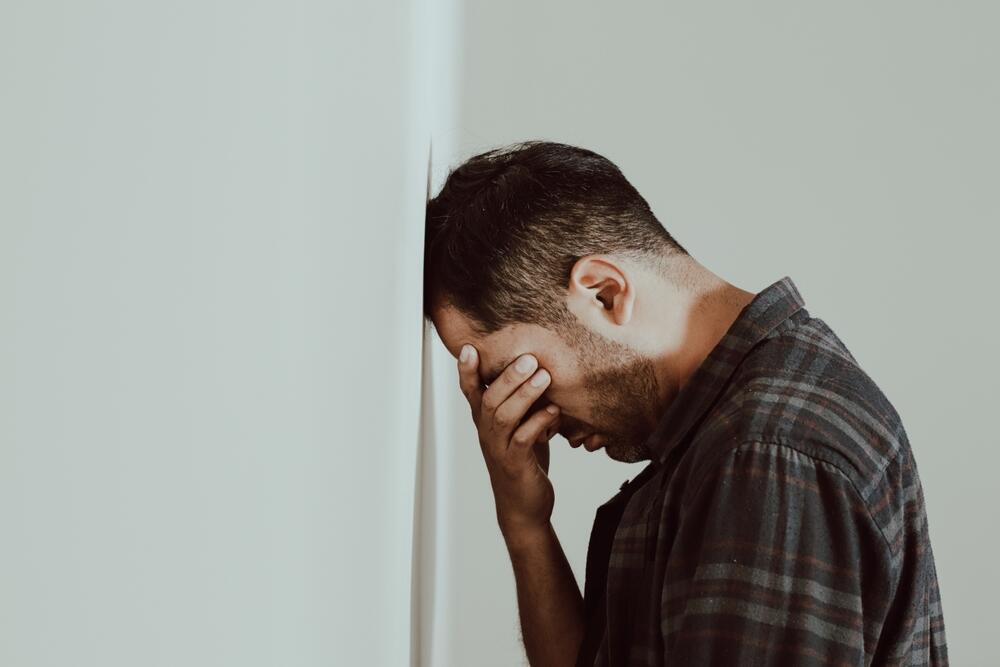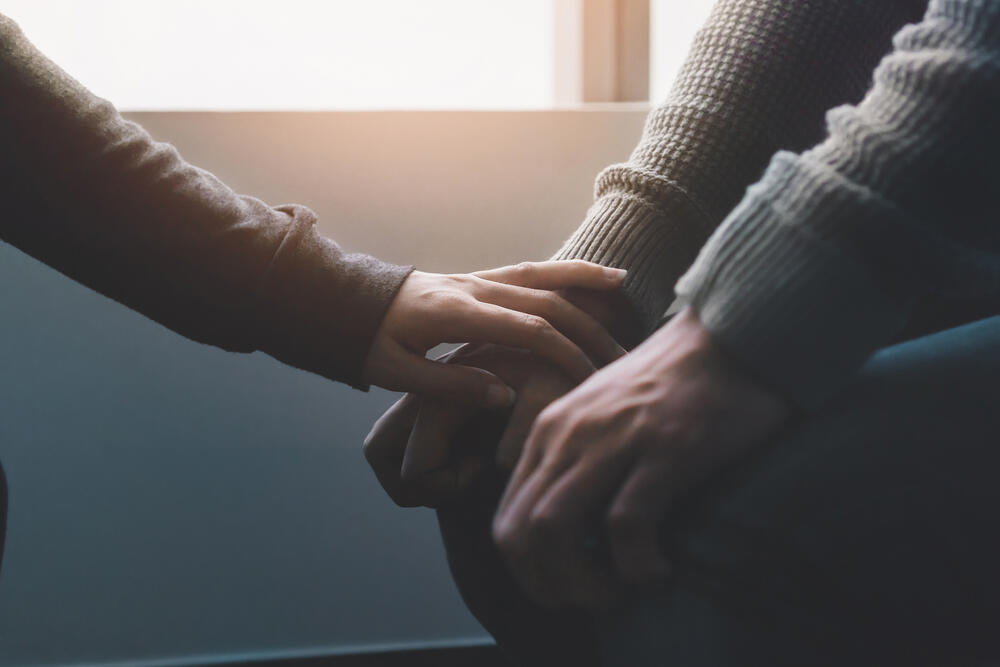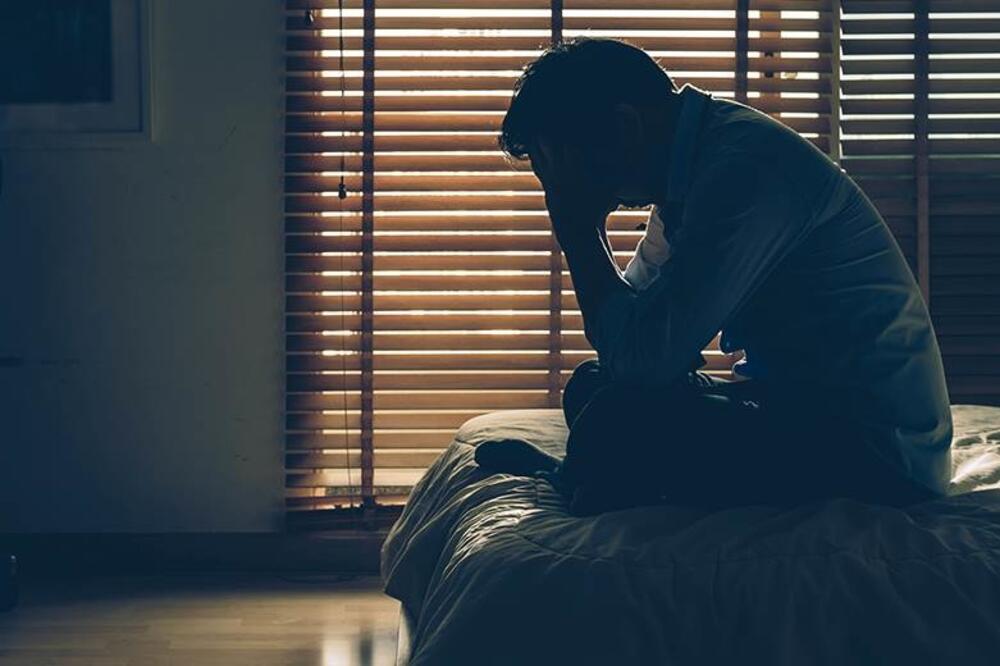Although we often use the terms sadness and depression as synonyms, psychiatrists warn that they are two very different conditions that are important to recognize in time.
Namely, we can often hear someone say that they are "depressed" when they are in a bad mood, sad or in a bad mood. Experts point out that it should not be confused, because depression is a serious illness, and sadness is a normal human emotion.
To explain the difference, Dr. Richard A. Friedman, professor of clinical psychiatry and director of the Clinic for Psychopharmacology at Weill Cornell Medical School, recounted the case of a patient of his in his mid-40s, a successful businessman who at one point began to lose confidence.
“He had trouble sleeping, waking up around 4 a.m. with intense anxiety and unable to get back to sleep. His appetite disappeared, as did his libido, and he lost a lot of weight," Dr. Friedman told The Washington Post.
Dr. Friedman says that his patient did nothing for months, convinced that the aforementioned symptoms were an expected response to financial problems and would soon disappear.
But after his wife insisted he needed help, he consulted a psychiatrist. He was haunted by thoughts that he had become boring and that the family would be better off without him.

"That patient was actually suffering from clinical depression, but his belief that what he was feeling was just 'normal' anxiety is very common. To say that we live in stressful times is an understatement. Climate crisis, wars, political disagreements... The world we live in is taking its toll on our mental health," warns Dr. Friedman.
See a doctor if symptoms last longer than two weeks
Talking about the differences between sadness and depression, psychiatrists point out that sadness is a normal human emotion, which means that it lasts relatively short and we can usually associate it with a specific cause. New sheet.
It's okay, and even necessary, to be sad sometimes - because of the loss of a loved one, unfulfilled expectations, failure at work, bad relationships with other people, financial problems...
In order to alleviate the feeling of sadness, talking with loved ones, crying, being in nature or spending time with a pet will help.
On the other hand, depression is a syndrome that, in addition to sadness or indifference, usually causes insomnia, loss of libido and appetite, social withdrawal, low energy, feelings of hopelessness, and suicidal thoughts and actions.
Depression, unlike sadness, needs to be treated
Sad people are unhappy because of a certain event, and depressed people feel bad about themselves and lose self-confidence.
In order to make a diagnosis of depression, i.e. a depressive episode, these symptoms should last for at least two weeks.
If you are not sure, ask yourself - how often in the past few weeks have you lost interest and pleasure in doing certain things? How often have you felt down or hopeless? If your score is three or more, there's a good chance you're depressed, not just anxious.

There is considerable scientific evidence that clinical depression is associated with changes in the parts of the brain that regulate mood, sleep, energy and appetite.
But science does not yet fully understand what causes the biological abnormalities in depressed people. This is believed to be the result of a complex interaction between genes and stress.
Antidepressants are not a cure for sadness
Psychotherapy is the first line of treatment for people with mild to moderate depression, but when the illness is severe, meaning either the presence of psychotic symptoms or suicidal thoughts and feelings, then a combination of therapy and antidepressants is the safest and most effective approach.
Antidepressants are not a cure for everyday unhappiness or sadness. Unless you have a form of clinical depression with corresponding biological changes, they won't make you happier.
Misusing antidepressants to treat normal ailments would be similar to using antibiotics to treat the common cold, which is caused by a virus and is not susceptible to antibiotics.
Exercise has significant antidepressant effects, because in addition to increasing energy, it makes us physically fit. In addition to the well-known release of endorphins, increasing the volume of the heart through exercise stimulates the release of BDNF, that is, the protein abrineurin, one of the neurotrophin growth factors associated with the canonical nerve growth factor.
Social connections, often disrupted by depression, are key to healing. That is why it is important to encourage patients to maintain contact with friends and family, because people are primarily social beings and like to feel the comfort and support of loved ones.

Along with medication, brain stimulation therapies, such as electroconvulsive therapy (ECT) and, more recently, transcranial magnetic stimulation, are very effective in treating depression.
New drugs for depression
There are promising new drugs for depression, such as ketamine, esketamine, and psilocybin, that produce rapid and long-lasting antidepressant effects, minutes to hours after administration. These drugs also produce rapid neuroplastic effects and, in a way, "rewire" the brain.
"The previously mentioned patient, a successful businessman, was surprised and relieved to accept the diagnosis that he was suffering from major depression and not from everyday sadness and anxiety. He started taking an SSRI antidepressant and went to weekly psychotherapy. His sleep and appetite improved in the first week, and within three weeks his feelings of fear and catastrophic thinking were gone. It reacts to stress as before. No more doom and gloom,” explained Dr. Friedman.
Everyday sadness is universal and goes away on its own, but depression is a potentially serious but treatable illness that no one should mistake for sadness.
"People often blame their depressed mood on some disturbing aspect of the world, such as the state of society or politics. My other patient claimed to be anxious and depressed because of the negative impact of the economy on his business. After successful treatment, he explained his progress by saying: 'The world is the same, but my reaction to it has changed. I thought the sky was falling, and now I know I was wrong," said Dr. Friedman.
Bonus video:





